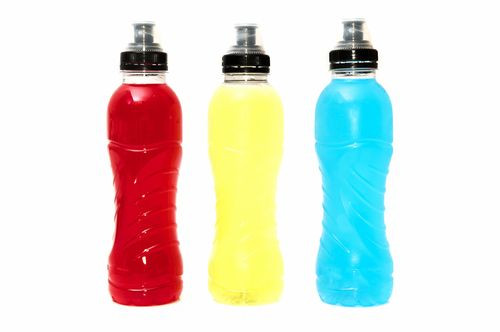Energy Drinks Linked To Unhealthy Behaviors Like Smoking And Soda Consumption

Sports and energy drinks are supposed to replenish the body after an enduring workout. However, new research shows that children and teens who consume these beverages display other unhealthy behaviors, such as drinking soda, playing video games for hours, and smoking.
For the study, published in the Journal of Nutrition Education and Behavior, researchers surveyed approximately 2,800 middle school and high school teens from 20 different schools in the Minneapolis-St. Paul metropolitan area of Minnesota about how often they drank energy drinks and about their other habits.
The research showed that "among boys, weekly sports drink consumption was significantly associated with higher TV viewing; boys who regularly consumed sports drinks spent about one additional hour per week watching TV compared with boys who consumed sports drinks less than once per week," said lead author Dr. Nicole Larson from the University of Minnesota, Minneapolis, in a news release.
Twenty percent of teens who consumed the energy drinks frequently told researchers that they had also smoked cigarettes, as compared to the eight percent of boys and girls who drank the energy drinks less often.
Larson also said that, "boys who consumed energy drinks at least weekly spent approximately four additional hours per week playing video games compared to those who consumed energy drinks less than once per week.”
However, researchers did point out that the study was only conducted one time, so they could not definitively say which came first — the unhealthy habits or the sports drinks. "Based on this study, we can't blame the sports and energy drinks at all," said Dr. Jason Block, an assistant professor of population medicine at Harvard Medical School, Yahoo News reported. "It's just that adolescents who aren't focused on healthy behaviors are more likely to consume these beverages."
Nevertheless, this information is important for parents because it might shed light on their children’s other unhealthy habits, and it's especially helpful in understanding the differences between sports drinks and energy drinks.
Furthermore, the American Academy of Pediatrics says that children and adolescents should not be consuming energy drinks at all. In 2011, the AAP released a statement saying that energy drinks contain ingredients that may be harmful to children and that sports drinks rarely need to be consumed.
“Some kids are drinking energy drinks – containing large amounts of caffeine – when their goal is simply to rehydrate after exercise,” said Dr. Marcie Beth Schneider, a member of the AAP Committee on Nutrition. “This means they are ingesting large amounts of caffeine and other stimulants, which can be dangerous.”
This is not the only study of its kind for University of Minnesota. In a 2011 study, researchers found that drinking sports drinks like Powerade and Gatorade was just as bad as drinking soda.
So what should children be drinking after a long workout or a day spent at practice? “Water should instead be promoted as the best option for hydration following physical activity," Larson said.
Source: Larson N, DeWolfe J, Story M, Neumark-Sztainer D. Adolescent Consumption of Sports and Energy Drinks: Linkages to Higher Physical Activity, Unhealthy Beverage Patterns, Cigarette Smoking, and Screen Media Use. Journal of Nutrition Education and Behavior. 2014.



























